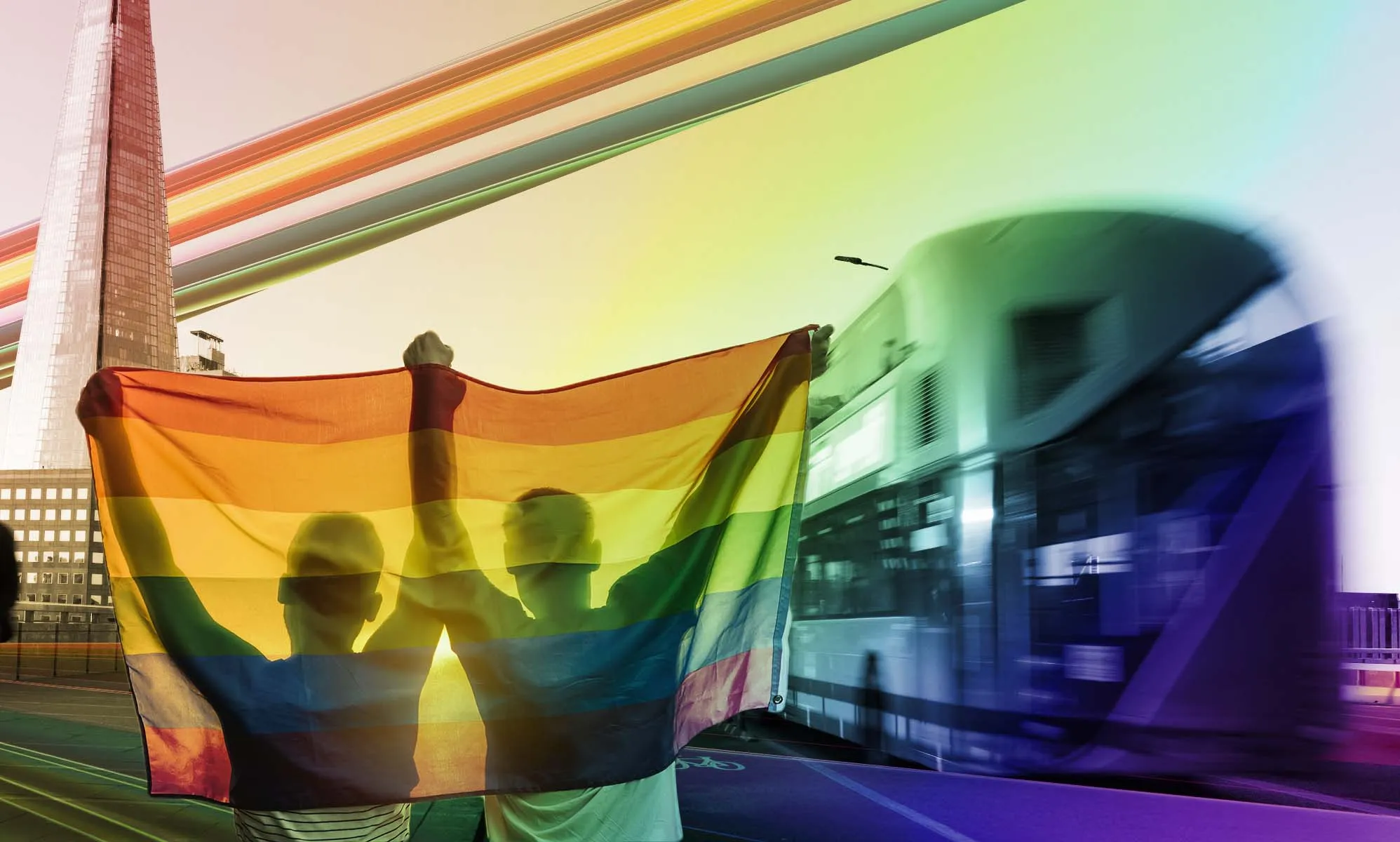Pride Attendee Shares Advice for London Public Transport Users
Sign up for more LGBTQ+ news and updates at TrueQueer.
Pride: A Time of Celebration and Visibility for the LGBTQ+ Community
June is recognised worldwide as Pride Month, a vibrant celebration of the LGBTQ+ community’s enduring fight for equality and acceptance. In London, tens of thousands of LGBTQ+ individuals and their allies participate in week-long festivities leading to the iconic Pride parade on 29 June. These celebrations gather more than a million attendees, filling London’s streets with a colourful display of solidarity, unity, and joy.
The city also hosts UK Black Pride, Europe’s biggest Pride event for LGBTQ+ people from African, Asian, Caribbean, Latin American, and Middle Eastern descent in August. Additionally, London Trans+ Pride, a large rally supporting trans, non-binary, gender non-conforming, and intersex lives, takes place on 27 July.
The Dark Side of Visibility: Facing Hate Crimes
While Pride Month brings courage and visibility to the LGBTQ+ community, it also exposes individuals to the risk of hate crimes. Despite significant strides towards equality, hate crimes against the community continue to persist in various forms – one common instance being harassment on public transport.
Among the LGBTQ+ community, many recount encounters with unprovoked verbal abuse or violent aggression during their daily commute. It’s essential for victims of hate crimes, and witnesses alike, to know that nothing justifies such criminal behaviour, least of all a person’s sexual orientation or gender identity.
Hate crimes are defined as criminal offences stemming from hostility or prejudice towards one’s disability, gender identity, race, sexual orientation, religion, or any other perceived difference. The perpetrator’s perception, rather than the victim’s actual characteristics, constitutes these unjustifiable acts.
What to Do If You Experience or Witness a Hate Crime
In the unfortunate event of a hate crime, whether you’re a victim or a witness, it’s necessary to know how to respond.
For Victims
First and foremost, remember that you are not responsible for the hate crime, and you did absolutely nothing to provoke it. Although it’s common to question what you might have done wrong, remind yourself that the actions of your abusers are never warranted. Report any incident to the authorities, as every report is taken seriously and contributes to preventing future occurrences.
For Witnesses
If you witness a hate crime taking place, you can offer help in various ways depending on your comfort level and the severity of the situation. Simply expressing concern and checking on the victim can be a comfort. Offering to assist in reporting the incident or directing them to safe exits or spaces can go a long way in reducing their trauma.
You might also consider intervention if you assess no immediate threat to your safety. Sometimes, a simple conversation or question pertaining to irrelevant matters might help dissipate the tension while assuring the victim that they’re not alone.
Reporting Hate Crimes
If a hate crime occurs on public transport, it’s crucial to report it despite whether you’re seeking a conviction or not. Reporting such incidents helps reveal their true scale and enables authorities to implement preventive measures.
Those on trains or tube lines can report incidents to the British Transport Police by texting 61016 or through the Railway Guardian App. For crimes on buses, notify the Metropolitan Police at met.police.uk or by calling 101. In emergencies, call 999.
Professional Support for Hate Crime Victims
Several organisations are ready to assist anyone affected by hate crime. The Community Alliance to Combat Hate (CATCH), for example, offers specialist advice, support, and advocacy. Victims can also report incidents after the event using the True Vision website.
Conclusion
As we approach Pride Month, it’s important to remember that everyone deserves to feel safe, especially during such a widely-celebrated event. While progress has been made towards equality, more steps need to be taken to ensure the safety of the LGBTQ+ community on public transport and beyond. Reporting hate crimes when they happen is crucial to unveiling the scope of this widespread issue and enforcing preventive measures.
Despite the persistence of these hate crimes, it’s important to remember that these incidents are not reflective of the daily experiences of most in the LGBTQ+ community. Instead, they underline the significance of Pride Month and the continuous fight for equality and acceptance.
Follow us on: Follow us on Facebook for more LGBTQ+ news and updates at TrueQueer.
“Pride in London celebrations”
![]()

